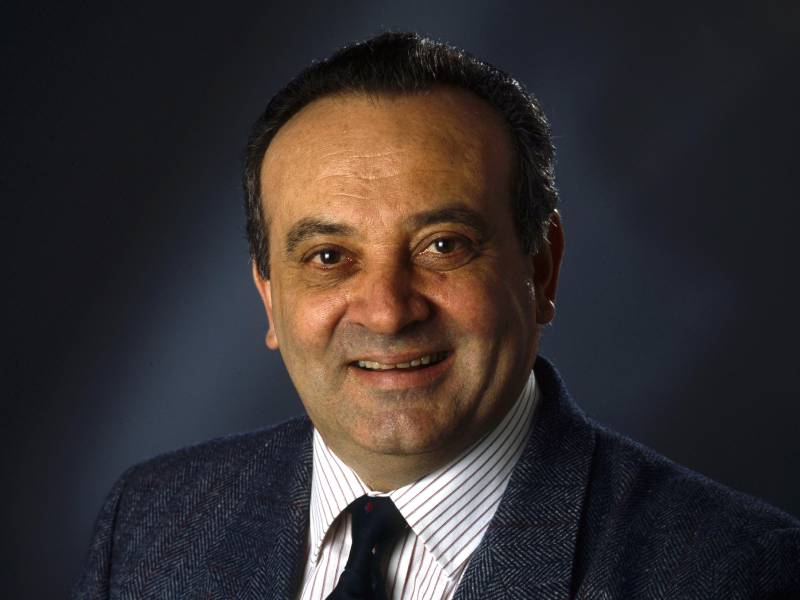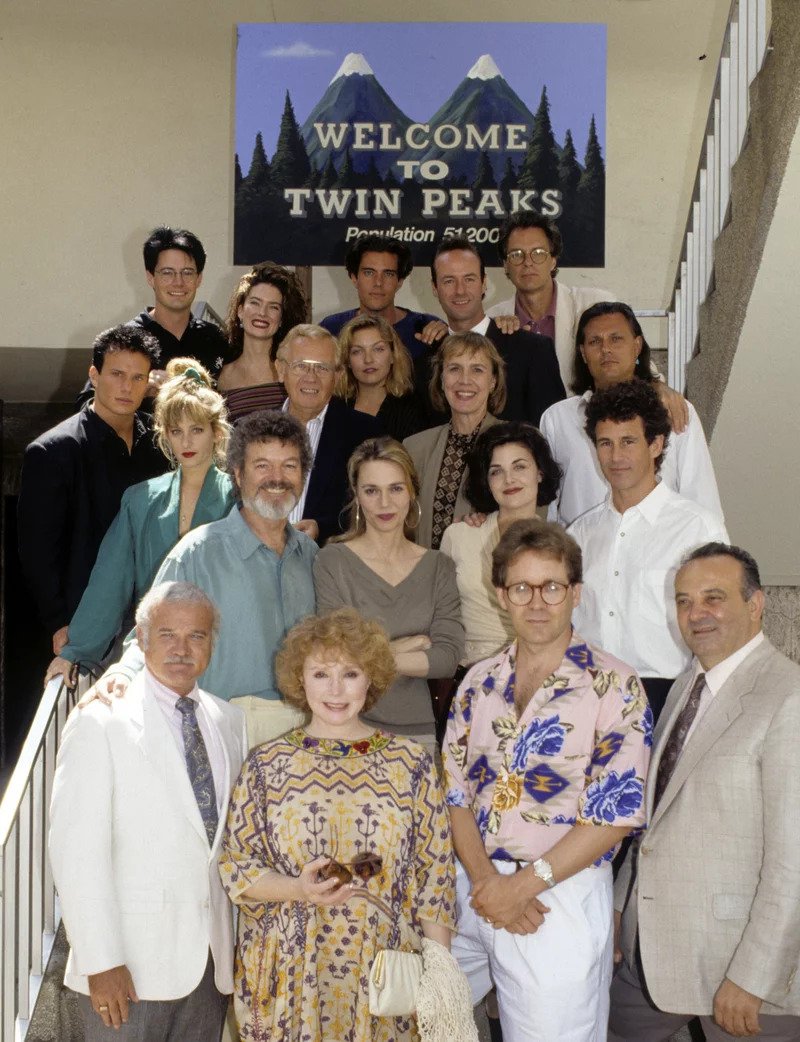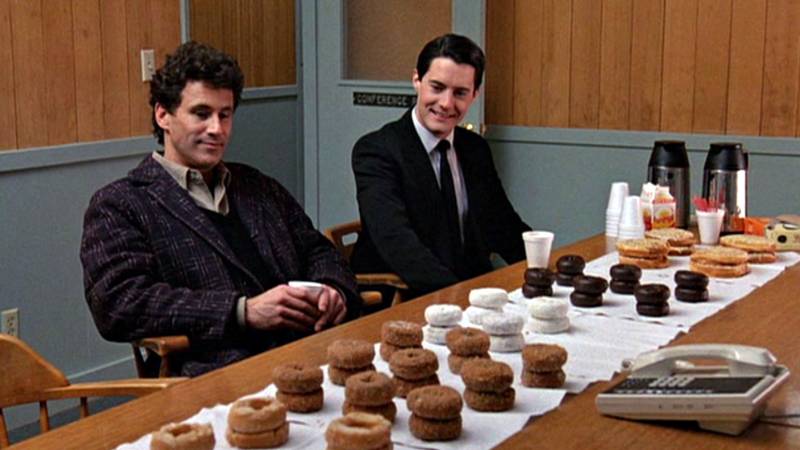A girl walks into a diner and goes straight for the jukebox, and the song she puts on is a strange one: a wordless, off-centered jazz number that slinks around, snapping its fingers and occasionally erupting in fits of woodwind and brass. “God, I love this music,” the girl sighs. “Isn’t it too dreamy?” In the middle of the restaurant she begins to sway — eyes closed, head back, arms out like airplane wings, lost in a mesmerizing and vaguely concerning trance. At other times the girl’s air of mystery is cannily performed; here it is plain to all witnesses that the song has taken her somewhere else. At this moment, in this scene, I and presumably millions of others fell obsessively in love with the television series Twin Peaks and, without then knowing, the music of Angelo Badalamenti, the conductor and composer who died last week at 85 and whose partnership with David Lynch was intrinsic to the director’s famous sensibility — the terror, the absurdity, the wild pain and sublime beauty and distinctly American ambient psychosis, the sincerity beneath it all. That part of the scene was unrehearsed, a pure reaction to the sounds; Lynch had given no warning to the actress, Sherilynn Fenn, that she’d be dancing to “this really cool, sexy, jazzy thing that Angelo and I just wrote!”
Seeing Badalamenti’s name flicker elegantly across a Lynch film’s opening credits — over blue velvet curtains, billowing flames, headlights on a two-lane highway or the glow of television static — you might envision a stately Italian maestro with an impressive scarf collection and discerning taste for espresso, not unlike the bit part he played hysterically in Mulholland Drive. In fact he was a cheerful, paunchy fellow for whom inspiration sometimes struck during a round of golf at the North Jersey Country Club, a Brooklyn-born son of a fishmonger who initially needed a translator for Lynch’s gee-whiz lingo. (“This is peachy keen!” Lynch yelped upon hearing Badalamenti’s demo work with actress Isabella Rossellini for her haunted rendition of Blue Velvet‘s namesake song, the filmmaker and composer’s first encounter. “You know, I’m from Bensonhurst — we don’t use those words,” Badalamenti laughed decades later.) As a child, Sunday nights meant gathering around the Victrola as his grandfather worked himself to tears narrating the storylines of Italian operas, early evidence of music’s capacity to make someone weep. Angelo spent his teenage summers accompanying Catskills resort singers on piano, earned a bachelor’s degree in French horn from the Manhattan School of Music and taught music to junior high students in Brooklyn; meanwhile he wrote jingles and torch songs under the pen name Andy Badale. (Two of them, “I Hold No Grudge” and “He Ain’t Comin’ Home No More,” appear on Nina Simone’s 1967 album High Priestess of Soul.) Badalamenti had scored a few films before stepping onto Blue Velvet‘s set, but his soundtrack for the 1986 classic marked his big break and the start of a 30-plus-year mind-meld with one of America’s great auteurs.
There’s a serendipity to so many of Badalamenti’s arrangements for Lynch, which serve as our emotional compass for navigating the director’s uncanny worlds. So impressed was Lynch with Badalamenti’s vocal coaching he invited the musician to collaborate on an original theme for Blue Velvet, offering no more guidance than this: “Make it like the wind, Angelo. It should be a song that floats on the sea of time.” (With them, it was always this way; sometimes Lynch would instruct his friend, “I’m gonna need some music that’s gonna tear the hearts out of people!” and at other times, a shared glance over coffee and turkey sandwiches was all it took.) Badalamenti sat down at the keyboard and out came “Mysteries of Love,” a liturgical-sounding synth arrangement I like to think of as the composer’s “blinding light of love” mode, to borrow a line from the film — startlingly hopeful music for piercing through the darkness. For its vocals he recruited a chorus girl he’d met off-Broadway by the name of Julee Cruise, whose belting musical theater voice he coaxed to sound like an angel who’d awoken on earth on the back of a stranger’s motorcycle.



9(MDAxOTAwOTE4MDEyMTkxMDAzNjczZDljZA004))

